How to grow potted roses - from the variety to pick, to the correct container size that will help them flourish
Get your container roses blooming with these expert tips on how to grow roses in pots
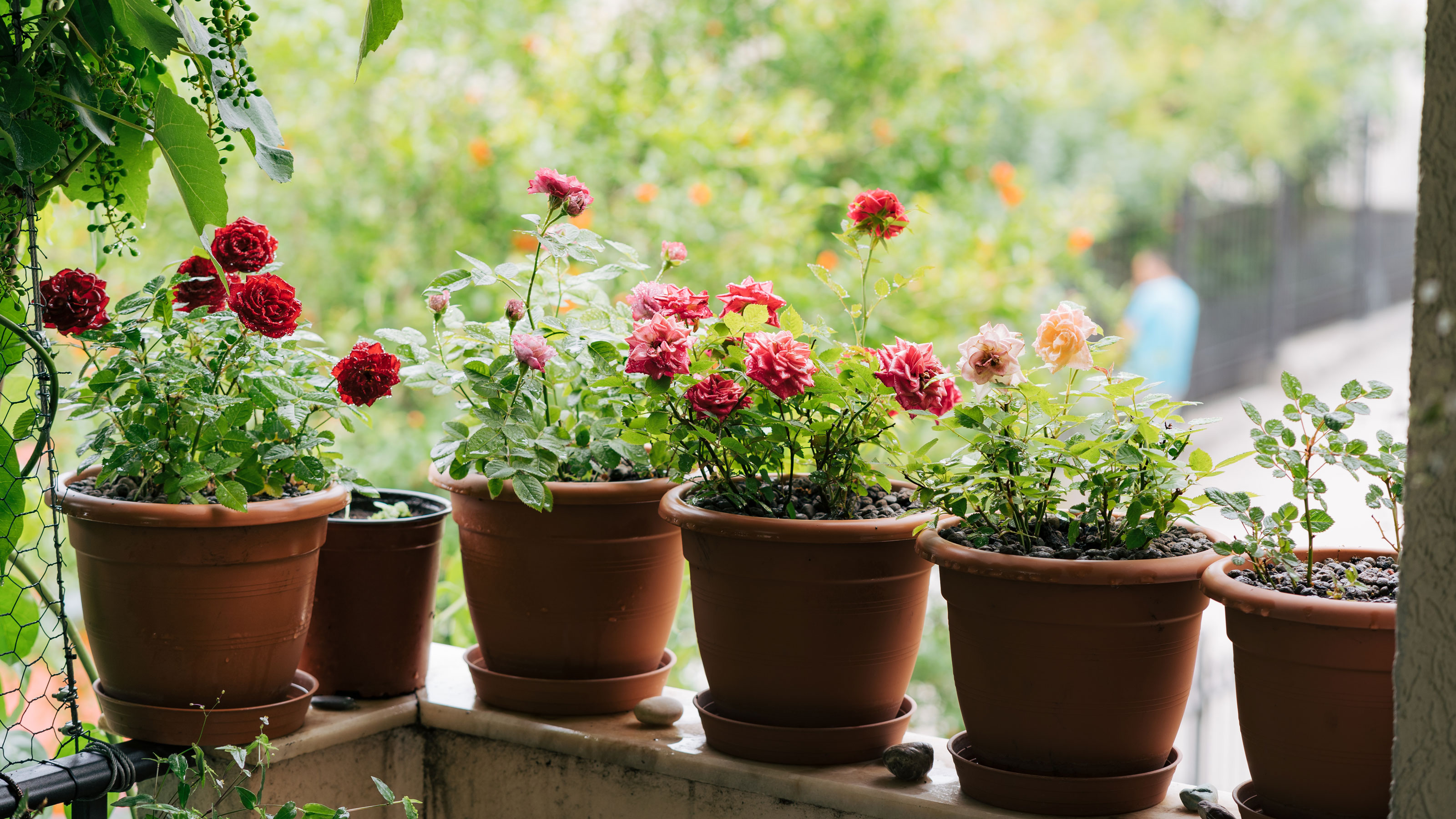
Sign up to our newsletter for style inspiration, real homes, project and garden advice and shopping know-how
You are now subscribed
Your newsletter sign-up was successful
The beauty of knowing how to grow potted roses is that not only is it an ideal option for small cottage gardens with patios and terraces but with the right species, it's much less hassle than growing roses from the ground.
When it comes to growing roses, there are thousands of varieties you can grow in your garden, but only certain varieties can be successfully grown in pots. So if you want to grow beautiful container roses, it pays to do a little research.
'Whilst most roses are ultimately planted out, with the right care and attention, there are many varieties that will also thrive well in pots,' explains Ian Limmer, Nursery Manager at Peter Beales Roses.

From container tolerant types to compost and cultivation. We've asked the experts for their recommendations on how to grow perfect roses in pots to enjoy the quintessential flowers all summer long.
How to grow roses in pots
Although a cottage garden idea hero and romantic symbol of beauty, garden roses have a reputation as not the easiest fragrant shrub to grow successfully.
Knowing the answers to common rose questions like how to take rose cuttings, when to plant out, should you fertilise roses and how to deadhead roses, will soon teach you the basics to own a blooming rose garden that will return year after year.
When it comes to growing potted roses, there are lots of container garden mistakes to avoid to ensure these flourish too. After all, roses are typically considered to be one of the plants that you shouldn't put in pots - but there are exceptions to this.
Sign up to our newsletter for style inspiration, real homes, project and garden advice and shopping know-how
Read on to discover a whole bunch of expert tips that will help turn you into a potting pro-smelling of roses in our step-by-step guide.
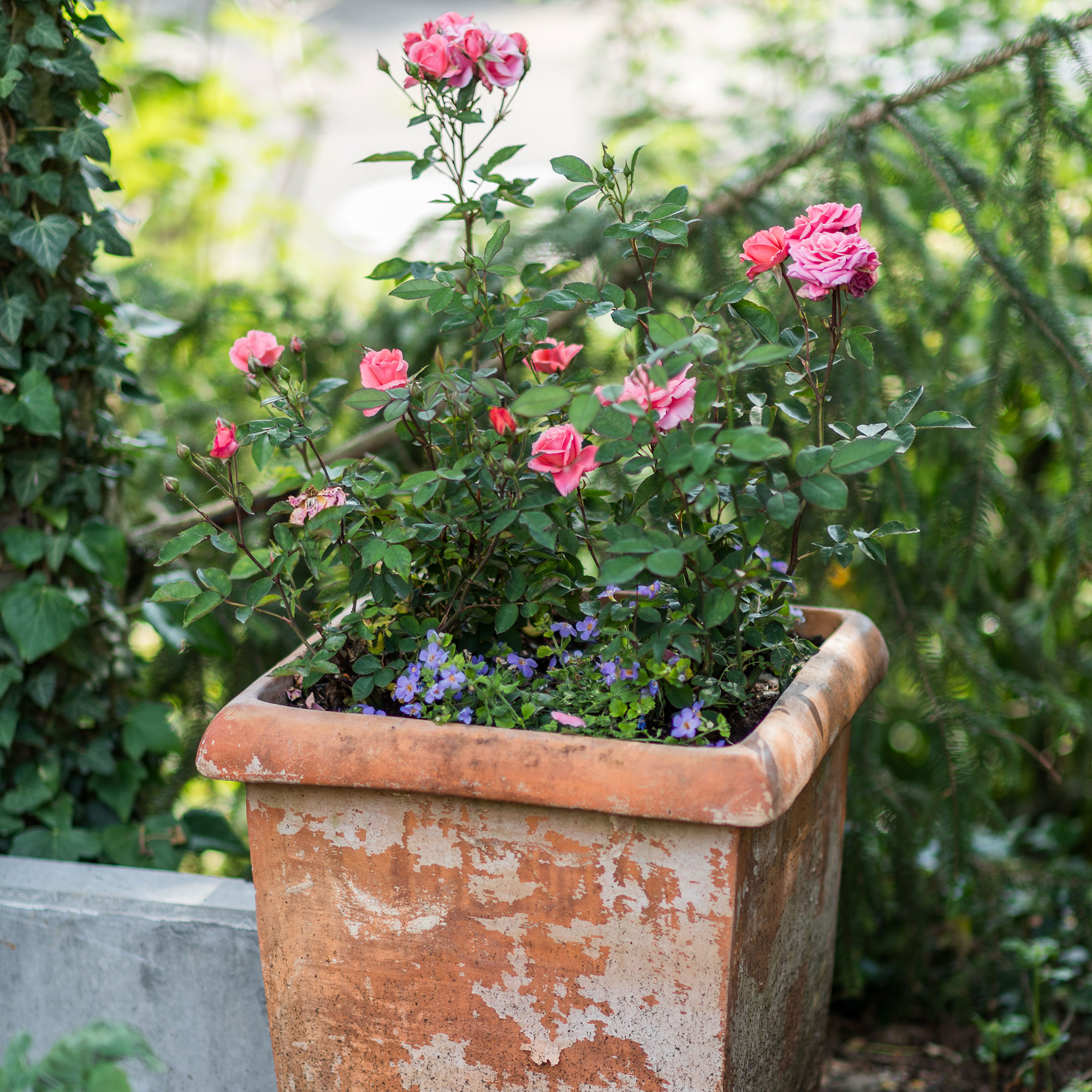
What you'll need
- A good quality pot with drainage
- Gardening gloves
- Gardening trowel
- Container roses
- Nutrient-rich soil
- Rose feed
- Water
1. Select a suitable rose for potting
The ground rule of knowing how to grow potted roses is to choose container-happy rose species. But, don't be put off by this as there are also plenty of rose types for pots - modern and classic. If in doubt your local garden centre will point you in the right direction and suggest suitable roses.
Look for non-vigorous varieties with a medium root space.
'Some roses work well in a pot so be sure to choose a rose variety that won’t try and grow too large and will enjoy being more restricted, read the variety descriptions,' explains Rosie Fyles, Head of Gardens at Chiswick House & Gardens Trust
Some of Ian Limmer's favourite roses for containers include:
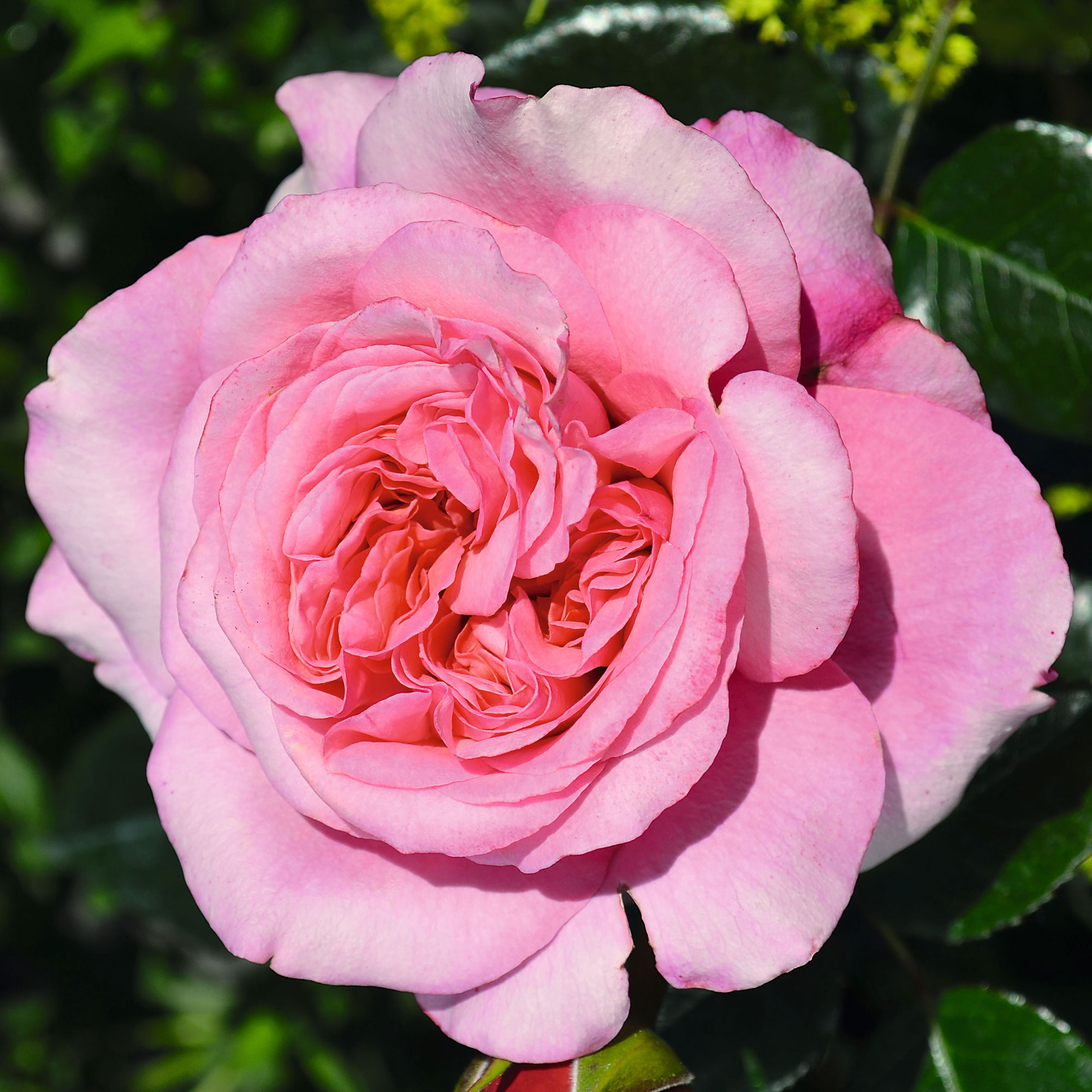
Timeless Pink A robust and healthy hybrid tea rose with a superb rich fragrance. With its mid-pink double flowers that bloom all summer long, this makes a good cutting rose and is perfect for a pot. Hardy and tolerant of poorer soils. Bred by Noack.
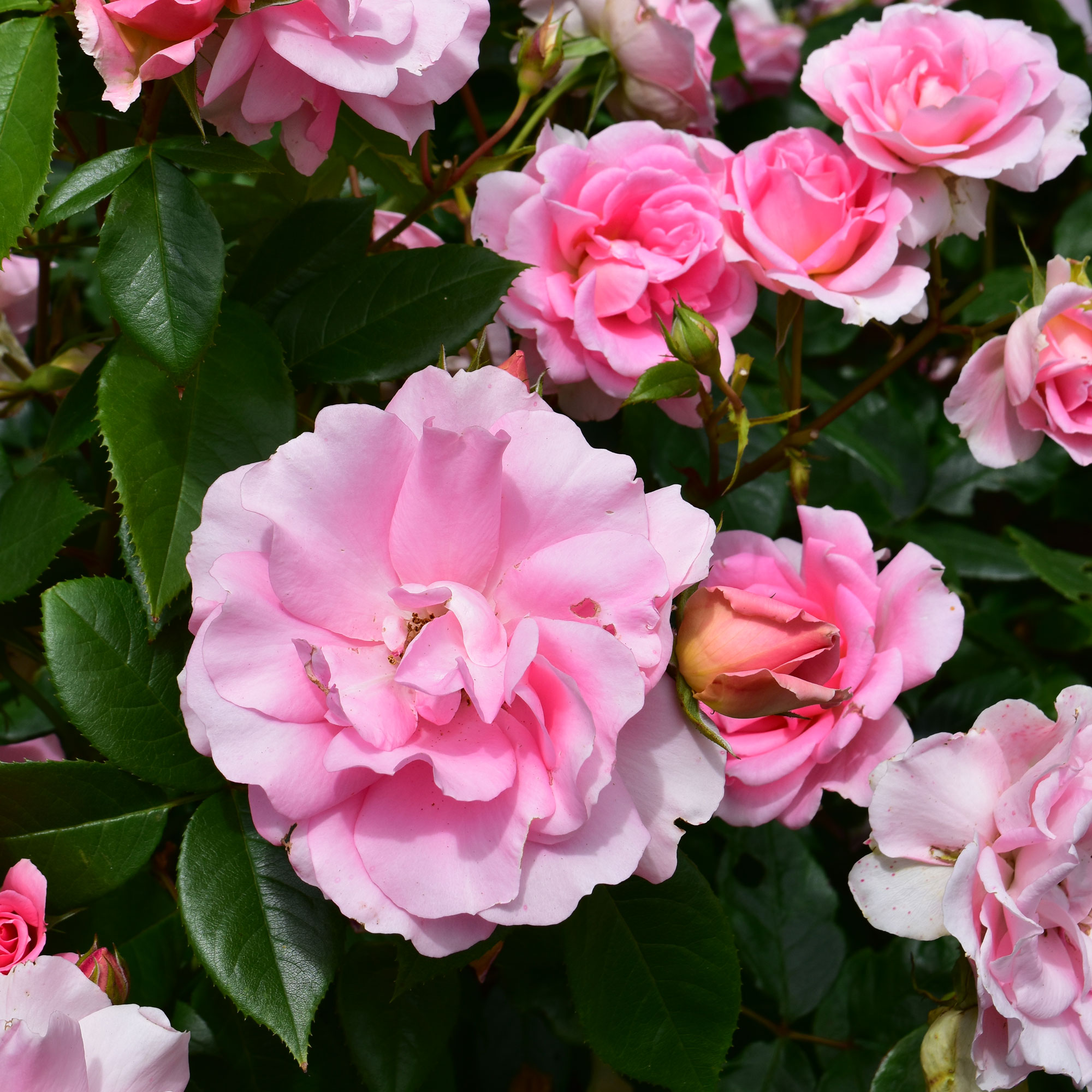
You’re Beautiful, AKA Love Always The 'Love Always' Floribunda was Rose of the Year 2013. This gorgeous rose produces a profusion of striking bright pink, fully double blooms and is disease-resistant and hardy with glossy foliage. This rose is suitable to be grown in a container and as a hedge. Tolerant of poorer soils. Introduced by Fryers.
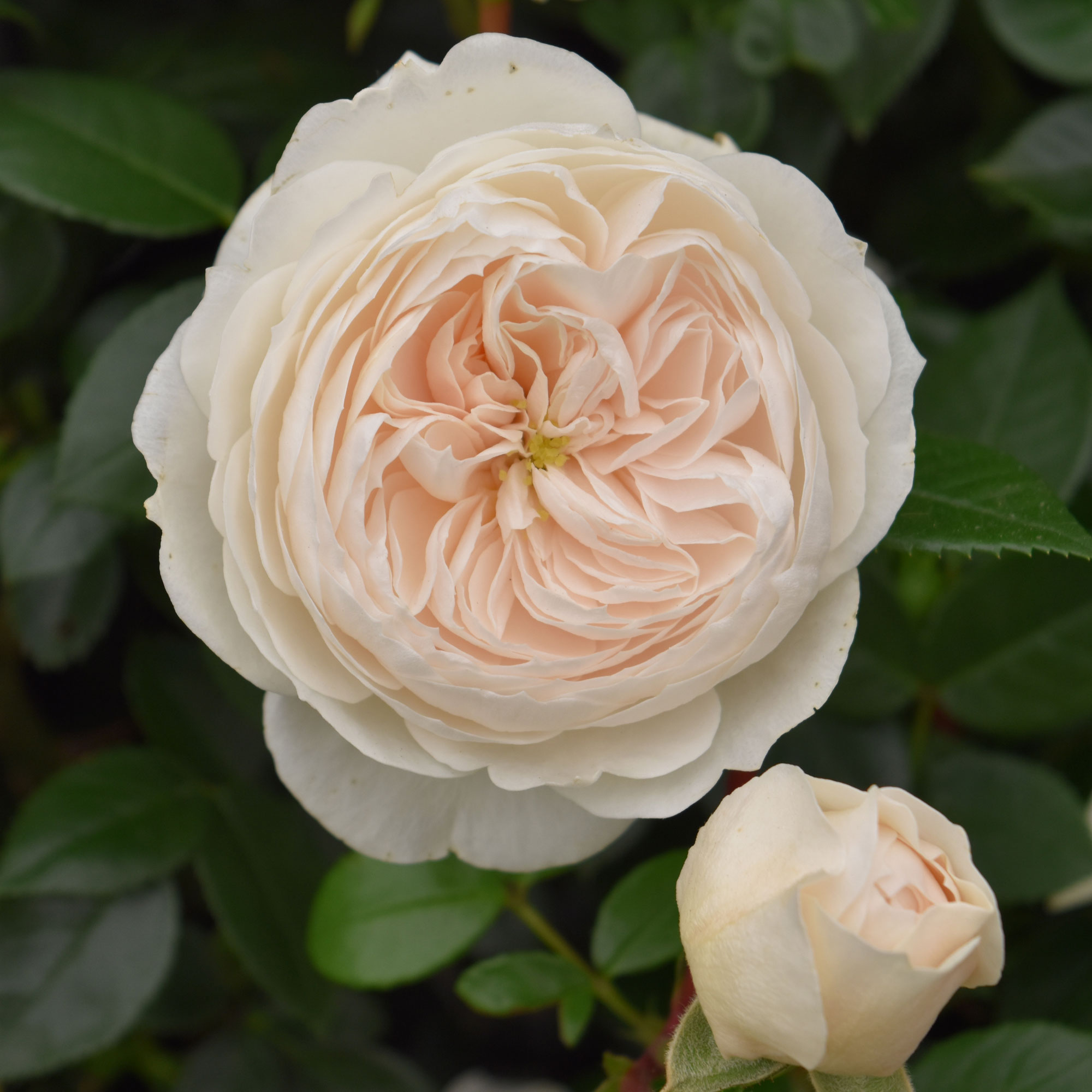
Macmillan Nurse An excellent little shrub rose with old-fashioned, rosette style blooms of white, initially flushed peach, borne in clusters. They are subtly scented and prolific throughout the summer and autumn against dark green, glossy, foliage. Shade tolerant, this rose is perfect for growing in tubs and makes an eye-catching statement if used as a hedge to edge your home. An incredibly healthy and rightly popular rose. Bred by Beales.
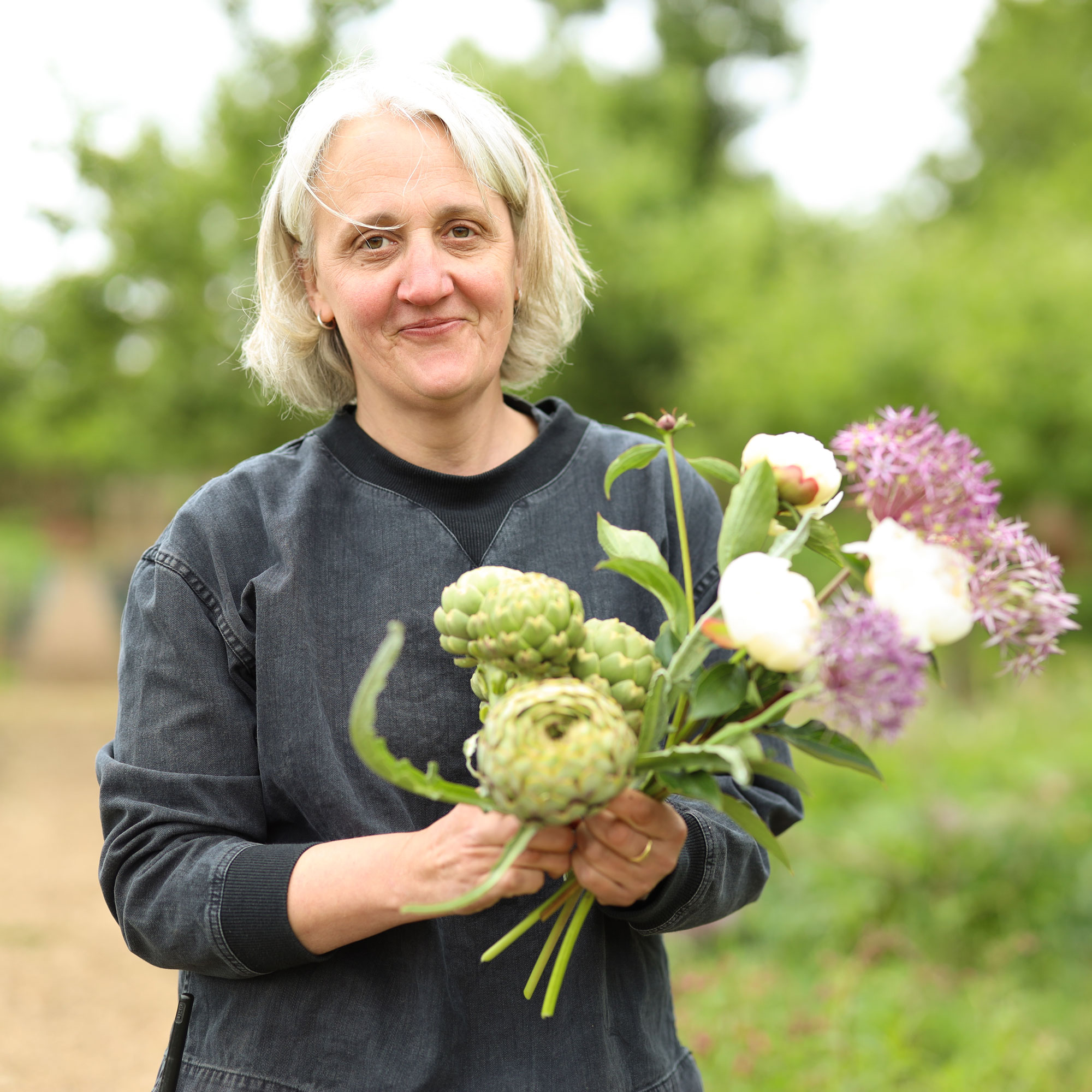
Rosie Fyles is head of gardens at Chiswick House and Gardens, a grade-1 listed 65-acre gardens open to the public 365 days a year with a 2-acre walled kitchen garden. Before Chiswick, Rosie spent 10 years in the National Trust and has written for Period Living, Country Homes and Interiors, The Sunday Times, Grow Your Own, Gardens Illustrated and Wildflower Magazine. She has appeared on Gardeners’ World, BBC Breakfast and George Clarke’s National Trust Unlocked
2. Choose the right size pot
Roses are shrubs and so like to bury their roots deep and wide. Therefore, it is important to select larger pots to allow for plenty of growth.
For miniature and patio roses, the experts at the Royal Horticultural Society suggest small but deep pots around 23-35cm deep.
David Austin Roses recommends using a pot with a minimum internal dimension of 45 x 45cm for larger rose species.
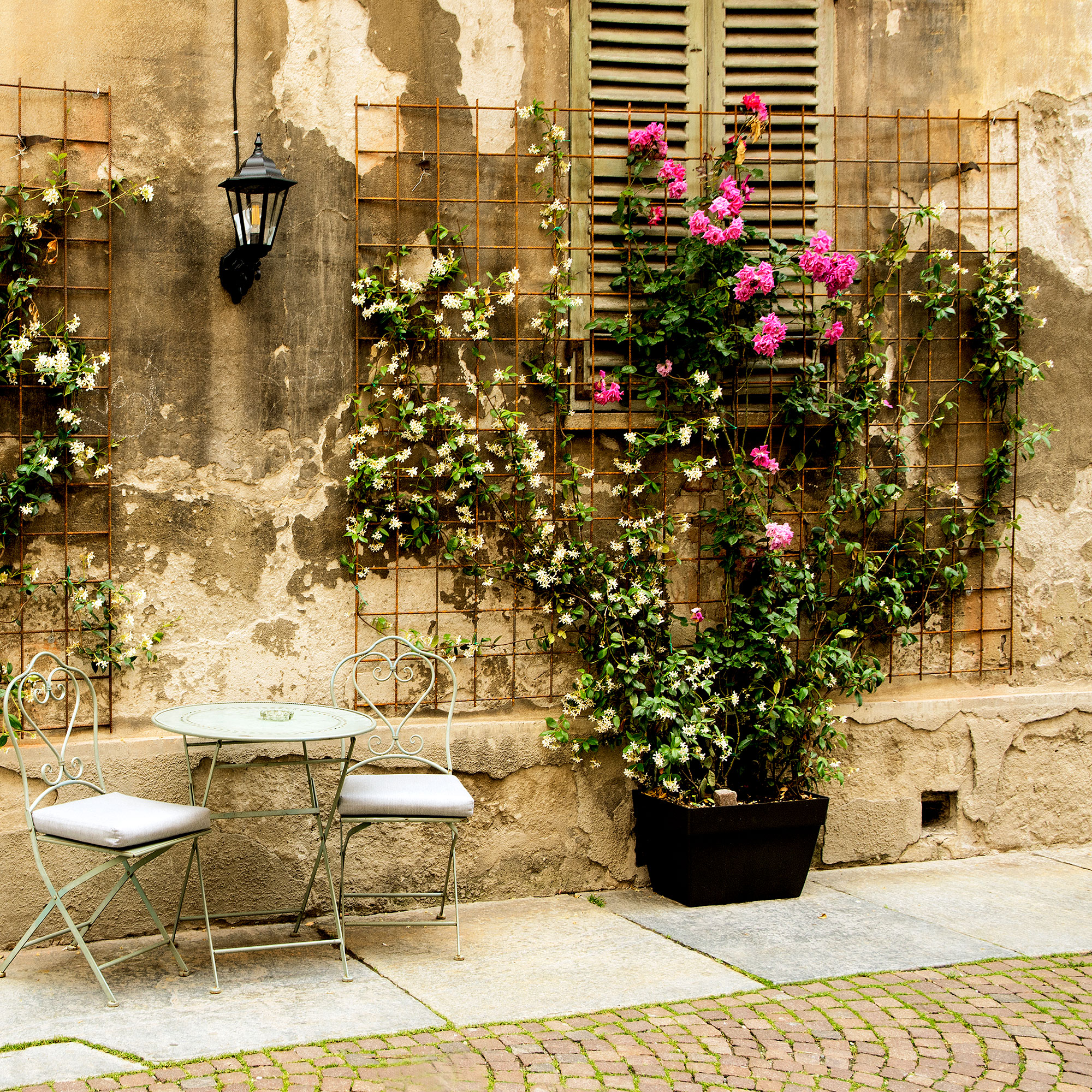
3. Add soil to the rose pot
In order to produce such beautiful flower heads, roses have a big appetite. Pre-mix regular multi-purpose compost with one that contains high levels of fertiliser and is suitable for mature plants and shrubs, such as John Innes No.3.
Or, Ian Limmer says: 'We recommend mixing the growing media with fish, blood, and bone or something like Vitax Q4 (available on Amazon) that contains all essential trace elements and nutrients."
Ensuring there is drainage access at the bottom, position the pot and fill to around half deep with the potting compost mix. Press down lightly on the soil as you fill to remove air pockets.

4. Plant a bare-rooted rose
Roses are usually purchased bare root or in nursery pots. If pre-potted simply lightly tap the bottom to remove. Wearing gardening gloves place the rose shrub in the centre of the prepared pot.
Fill the pot with the remainder of the compost mix firming the soil down until full.
Think about where your pot might be standing too – in full sun might be best. If a plant is in a pot, it will need more care than in the ground, when you plant be sure to mix your compost with some drainage, grit, or horticultural sand. The roots will thank you for it
5. Water well
As well as plenty of food and sunlight roses require regular hydration. This is especially true of roses kept in pots. During hot days container roses will need daily watering when in flower.
'As well as putting the plant under stress, insufficient watering can also contribute to the development of rose diseases. It is difficult to overwater a rose, but they won’t like having their roots sitting in cold water for long periods,' continues Ian Limmer.
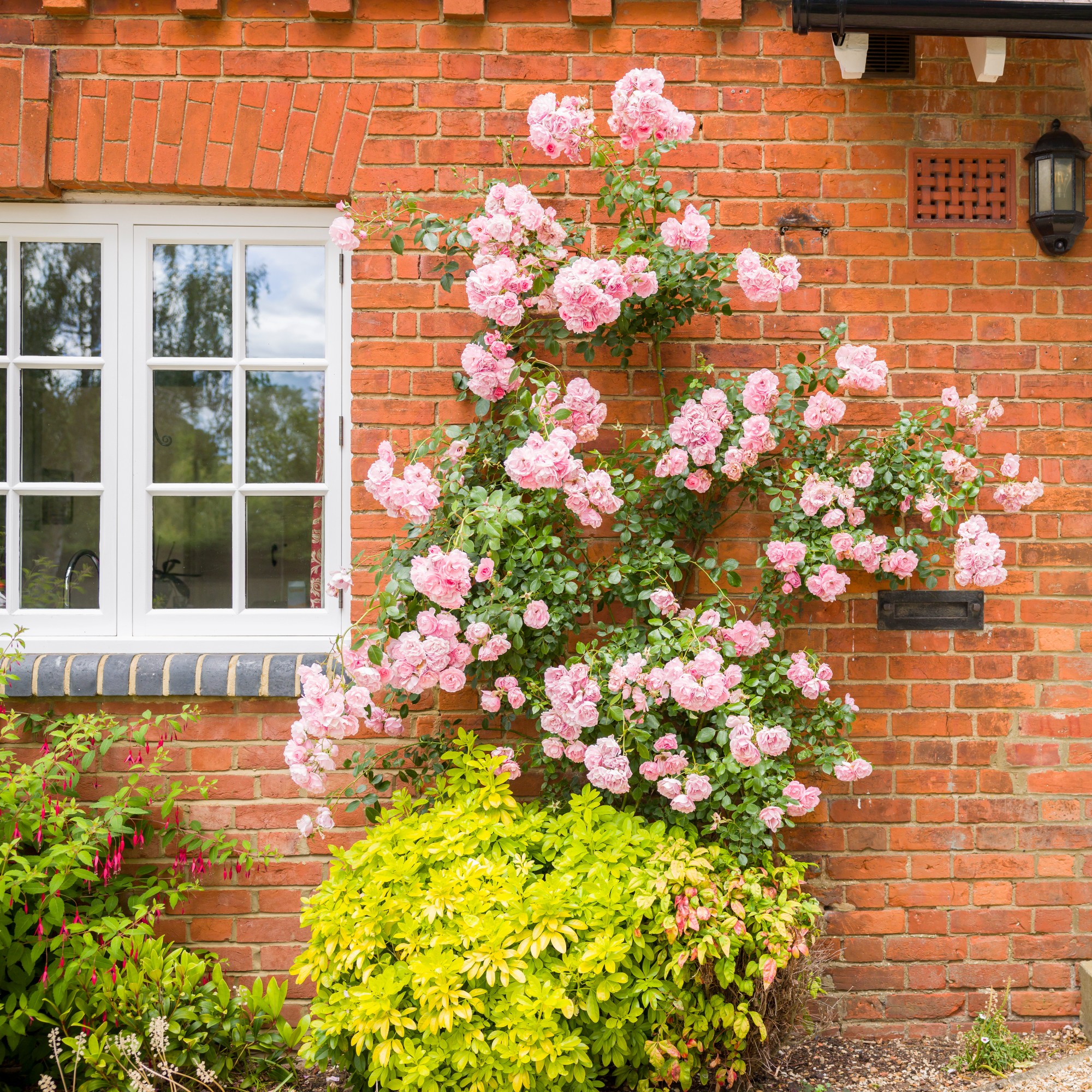
6. Start a feeding regime
As mentioned it takes lots of energy to produce such beautiful and plentiful rosebuds and flowering heads, so at the time of planting apply a slow-release feed.
Repeat in June and August. Then, keep this up every two weeks throughout the flowering period with a high potash liquid feed.
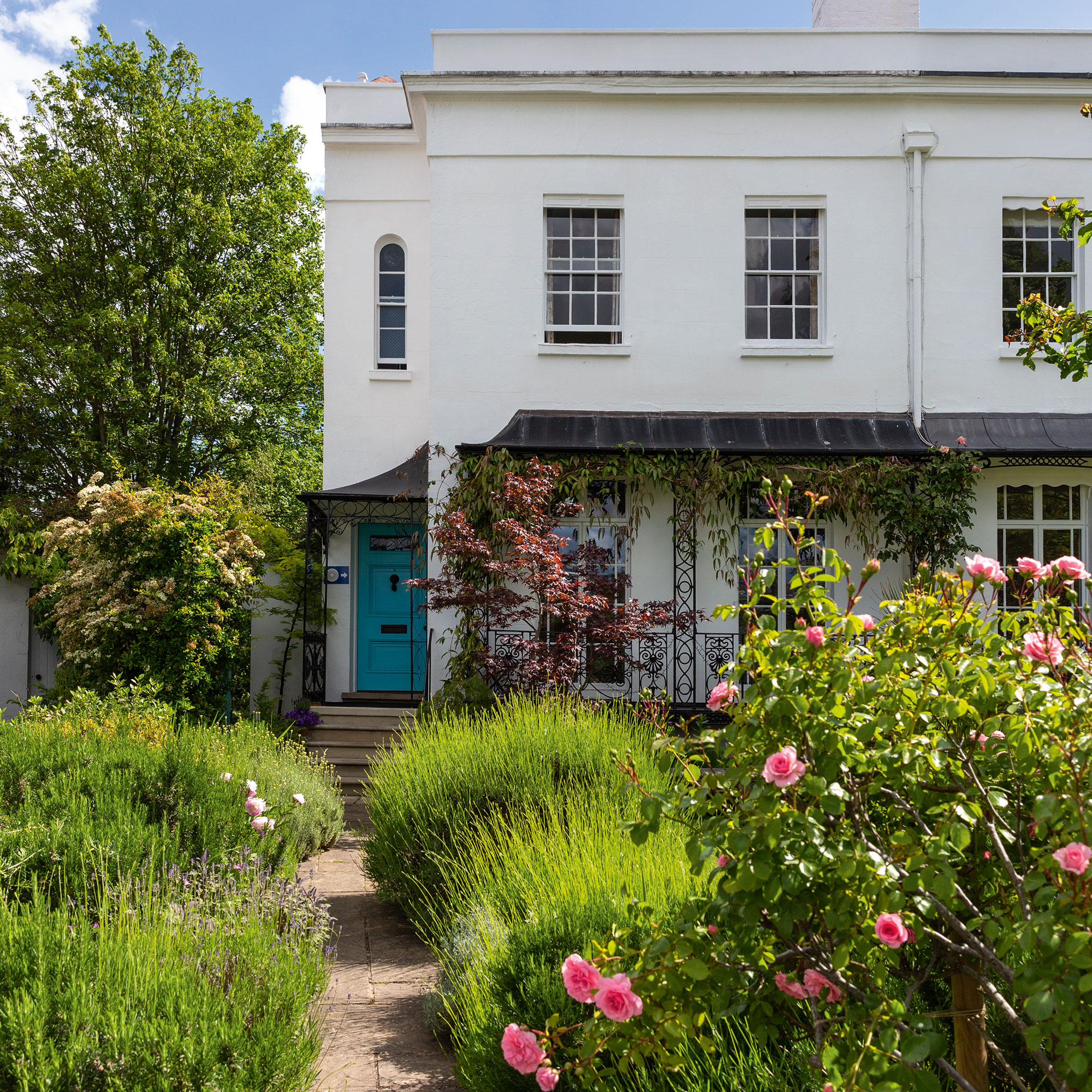
FAQs
When should I plant potted roses?
Container-grown roses can be planted all year round provided the ground is not frozen or in drought.
For best results, Felicia Alvarez, founder and owner of Menagerie Flower Farm says 'Spring and fall are the best times to plant potted roses in containers so they can get established before the summer heat or winter frost arrives. Bare root roses can be planted in pots during your dormant season.'
Should I prune container roses?
Maintain potted roses during flowering season by regularly deadheading. As with all roses, pruning will keep them healthy and producing flowers.
The time to prune roses in pots is early spring. Don't be tempted to prune roses before winter frosts as this will make them vulnerable to disease and weather damage when dormant.
'For roses, I would recommend a late winter prune, a good feed or two in spring (seaweed or similar) and check for watering weekly at least,' says Rosie Fyles.
Rachel Homer has been in the interiors publishing industry for over 15 years. Starting as a Style Assistant on Inspirations Magazine, she has since worked for some of the UK’s leading interiors magazines and websites. After starting a family, she moved from being a content editor at Idealhome.co.uk to be a digital freelancer and hasn’t looked back.